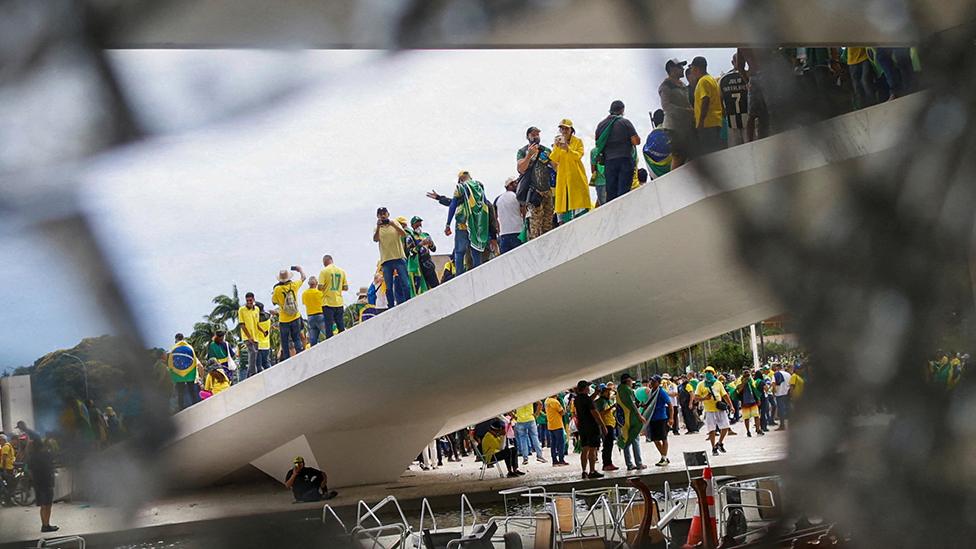The mystery buses behind Brazil Congress attack
- Published
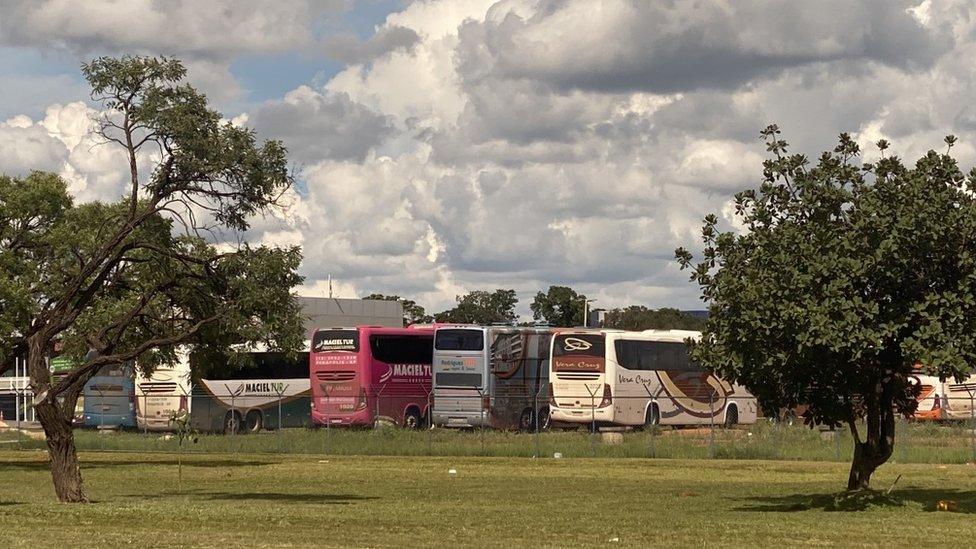
Authorities seized a fleet of about 40 buses after the riot
Hundreds of the protesters who stormed Brazil's Congress have been arrested but mystery still surrounds the identity of the people pulling the strings. Could a fleet of buses seized by police hold the key?
Two months ago, 60-year-old Odair boarded a bus in the southeastern state of Parana, bound for Brazil's capital more than 1,460 km (907 miles) away.
His mission: to spend weeks showing his support for a man he affectionately refers to as "the Captain" - former President Jair Bolsonaro.
For Odair, the trip ended badly.
While he claims he did not participate in the riot at Brazil's Congress on 8 January, he was among the more than 1,500 taken into custody by police at nearby Bolsonaro supporters' encampments - where many had been for weeks - in the immediate aftermath.
"There were old ladies in there, crying. They had lost contact with everyone," he told the BBC after his release, clad in the blue and yellow Brazilian football gear that has become synonymous with Bolsonaro supporters. "This is really sad business."
Those detained hail from at least 10 Brazilian states and like Odair they made a long journey to Brasilia.
Four days before the riot, a video inviting people to the Brazilian capital for a "party" went viral. It promised free buses would take people from different parts of the country, with coffee and food laid on.
Who or what group was behind this idea, and financed it, remains something of a mystery - one that has gripped the attention of people across the country.
"It's obvious to everyone they didn't do it themselves," Alice Teixeira, a Brasilia resident, told the BBC at a local filling station. "They were from many places."
What have authorities said?
Earlier this week, Brazil's current President Luiz Inácio Lula da Silva said the rioters are "possibly victims" of manipulation at the hands of still-unknown financiers.
So far, much of the investigation has focused on a fleet of approximately 40 buses seized by authorities after the riot. Many of these brightly-coloured buses are currently parked in a police lot on the outskirts of the city, where they are clearly visible from the highway.
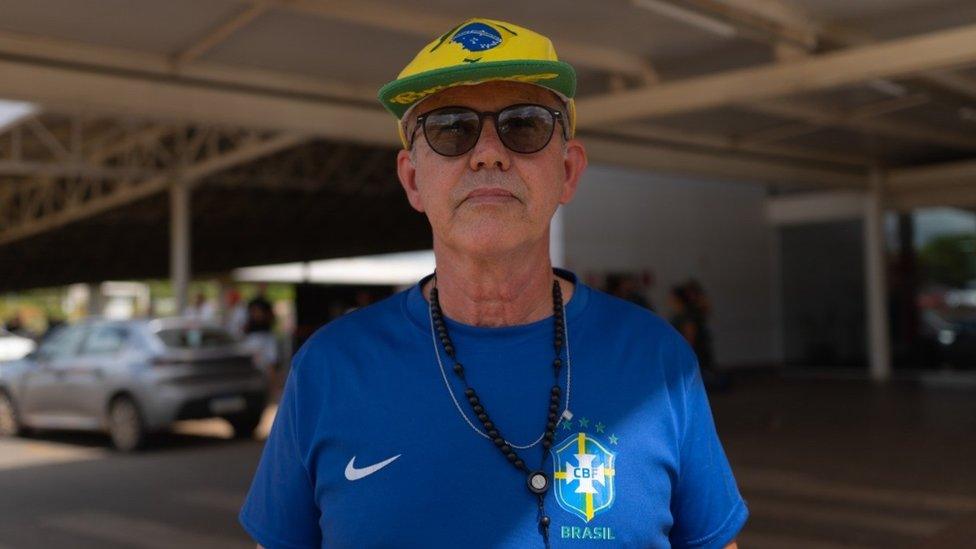
Odair was among the Bolsonaro supporters taken into custody by Brazilian police
At a news conference on Tuesday, Justice Minister Flavio Dino said that unnamed "business executives" rented the buses to transport Bolsonaro supporters to Brasilia from across the nation who had been offered "free trips" on social media.
While Mr Dino offered no names amid the ongoing investigation, he described the alleged organisers as being involved in the agriculture industry and the gun lobby in Brazil's conservative midwestern and southern states. Others - including President Lula - have suggested that mining and logging firms may also be involved.
Politically, these regions are considered bastions of support for Mr Bolsonaro.
Paulo Abrão, a Brazilian law professor and human rights expert, said that backers are likely from groups that "benefited from a lack of government control" under the Bolsonaro government.
"The financiers of this incident could be groups that harm the environment, or who violate human rights in their work," he said. "These groups would benefit from attacking the institutions of the state."
Denials from 'Bolsonaristas'
Many hardline supporters of the former President continue to cling to the narrative that the events of 8 January were the work of leftist provocateurs who, they say, wanted to derail peaceful protests against the Lula government.
Among them is Telma Viera, a Sao Paolo resident who spent weeks at a camp in the city alongside other Bolsonaro supporters. On Tuesday, she was in Brasilia, where she was visiting two friends taken into custody following the riot.
"This was not something done by our patriots," she said outside the police facility where the alleged rioters are being held. "There were people from the left there, before ours."
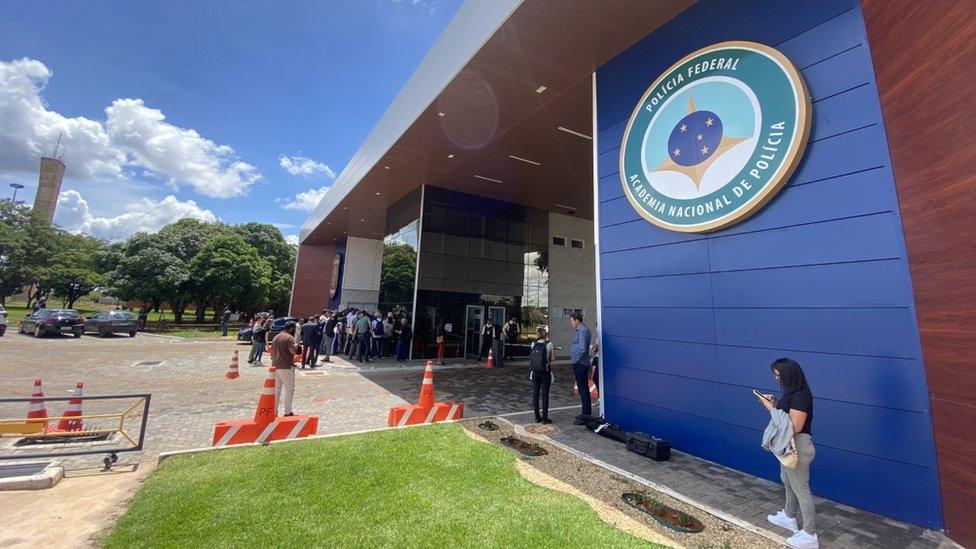
Hundreds of alleged rioters are being held at this facility
Another Bolsonaro supporter, Edson Varela, echoed Viera's statement, saying that "infiltrators" started the violence at the riot "to give the government another reason for coming after Bolsonaro".
As evidence, Ms Varela and Ms Viera both pointed to Instagram and social media videos which purport to show known Lula supporters among the crowd.
While none of these videos have been substantiated, these opinions are being widely shared and gaining traction among large swathes of Brazilians, both at home and abroad.
Juscelino Colares, a US-based Brazilian law professor, told the BBC that his numerous Brazilian friends have sent him "videos that document Bolsonaristas telling rioters not to burn or destroy public property".
"Like me, they all believe many agent provocateurs from the left took advantage of frustration among some naive right-wing protesters," he said.
What's next?
While Brazilian officials have vowed to identify and punish those responsible, they have so far offered little detail on the investigation, although Brazilian telecom carriers have been ordered to preserve data that may be related to the riot.
Any potential penalties for those who organised the riot remain unclear.
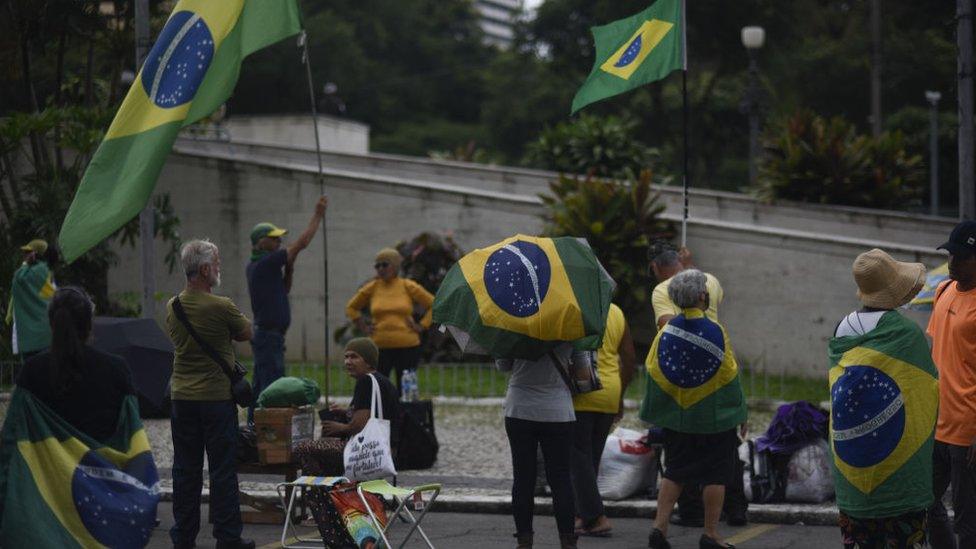
Some Brazilians, like Mr Abrão - a former executive secretary of the Inter-American Commission for Human Rights - are now calling for a congressional commission to probe the riot and what led up to it, as was the case in the US with the committee that looked into the 6 January 2021 riot.
"This country really needs to establish an instrument like that, that involves the judiciary and other government powers," he said. "We need to create the conditions to make that possible. It's vital."
In the meantime, many Brazilians will be anxiously waiting for answers.
"I believe some will [eventually] be identified," said Geomar Andre Bender, a lawyer and author. "But some will never leave their mark."
Related topics
- Published11 January 2023
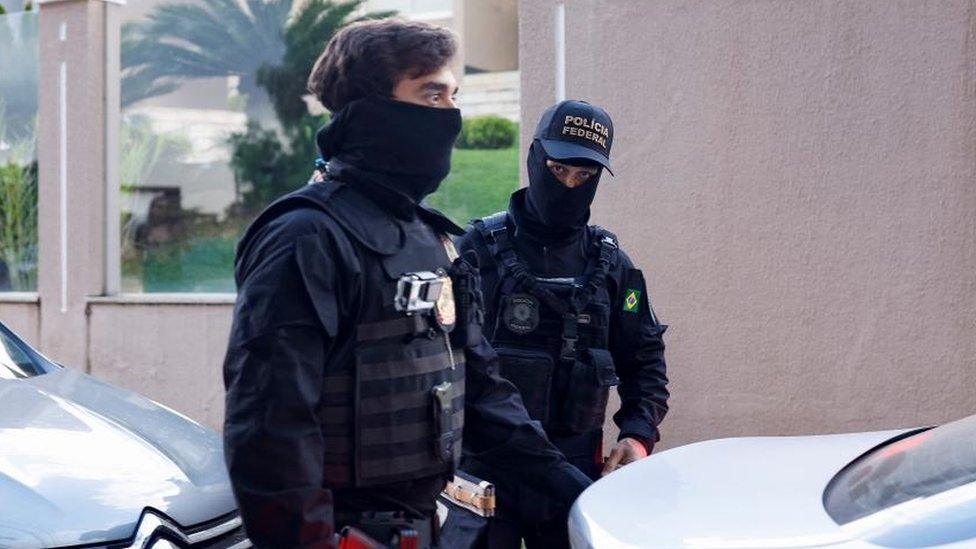
- Published10 January 2023
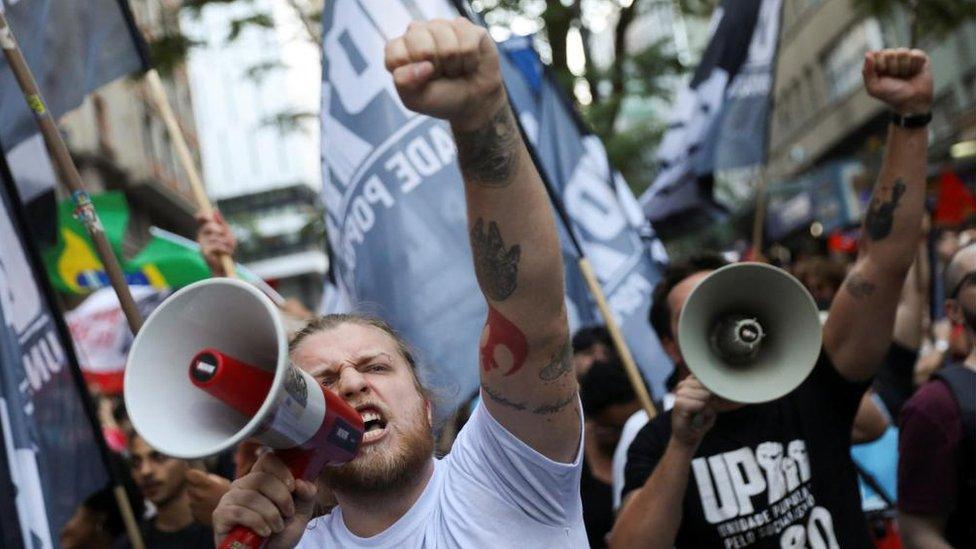
- Published9 January 2023
